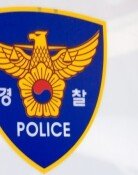Gov`t urged to beef up system to ensure entry of N.K. defectors to S.K.
Gov`t urged to beef up system to ensure entry of N.K. defectors to S.K.
Posted June. 19, 2013 06:44,
The South Korean government has decided to increase manpower in charge of North Korean defectors and construct customized cooperation systems with the countries concerned in order to prevent recurrence of a situation like the forced repatriation of North Korean teenage defectors that happened in Laos. It is fortunate that the government, though belated, has come up with a comprehensive measure, after recently failing to prevent kkotjebi (North Korean homeless children) from being repatriated to the North due to negligence and complacency. The government should thoroughly manage the new system, as it is a stable that has been put in place only after some horses ran away.
The government has been making diplomatic efforts to safely maintain the Laos route for defection from North Korea, virtually the only path available since the closure of the Vietnam route. At the U.N. Human Rights Council and the South Korea-ASEAN meetings, South Korean officials including foreign minister and vice minister reportedly met with key officials from Laos and discussed ways to cooperate on North Korean defectors. The successful entry into South Korea of some 20 North Korean defectors who were staying at the South Korean Embassy in Laos was possible because the Seoul government gained proactive cooperation from the Laos authority.
North Korean defectors` successful entry into the South is an exceptional case. There was no room for mistake amid keen interest among the South Korean public and government. If diplomats at frontiers feel sense of incompetence or lack commitment due to lack of assistance to protect North Korean defectors, the situation will be totally different. As such, beefing up the manpower and organization in charge of North Korean defectors was a task the government should have done without fail. This is also an effort to elevate sense of commitment among diplomats in charge. If the government lacks diplomats available for the job, it may consider utilizing private-sector human resources that are armed with sense of mandate and professionalism.
The comprehensive measure, which has been announced this time, should not end as one-off effort taken by the government to dodge criticism. It has been long since protecting North Korean defectors and enabling them to safely enter South Korea became an important part of the Souths diplomacy. Now that public consensus on protection of North Korean defectors has been established, the Foreign Ministry should make all-out efforts to play its due roles. The South should also enact as soon as possible the North Korea Human Rights Act, which remains stalled at the National Assembly for the eighth year, and thus prepare an assistance system to help North Korean defectors at the national level. It is hoped that progress is made at the current extra parliamentary session in this regard.
Irrespective of measures to protect North Korean defectors, South Korea should continue to raise issue with the Norths inhumane acts of forcefully repatriating North Korean defectors and punishing them. Another way is to remind the international community of the need to protect North Korean defectors through the Commission of Inquiry, which will set off at the end of this month. At the South Korea-China summit scheduled for June 27 in Beijing, South Korea should also raise issue with Chinas repatriation of North Korean defectors to the North and urge China to drastically shift its stance. Gone is the time when South Korea could afford to let North Korean defectors depend on their luck in their strife to move to South Korea.







